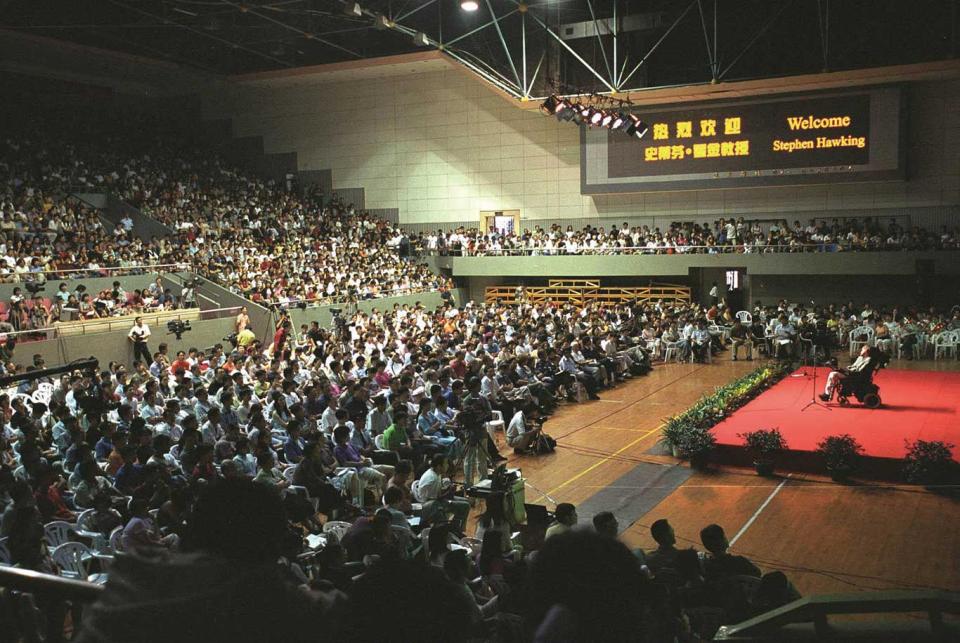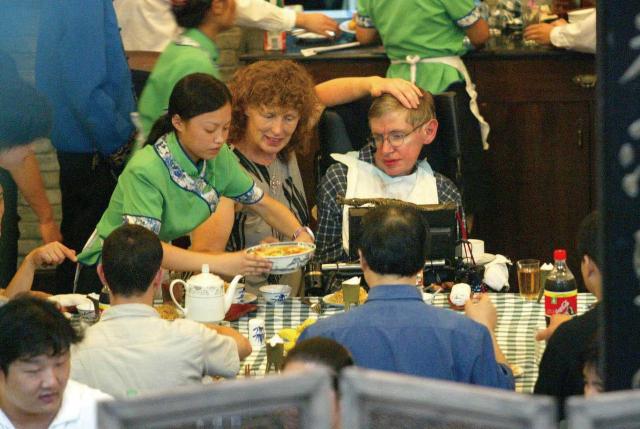On April 1, 1988, A Brief History of Time rolled off the presses in Britain and Wu completed his translation the same year. He contacted several publishing houses in China, but none would publish it, arguing that few people would read such a theoretical work.
Hunan Science & Technology Press eventually took the bold step and purchased the copyright at the knockdown price of US$300. Wu recounted that back then, the concept of copyright was unknown to many people in China. “If the publishing house didn’t pay for the copyright, I would have paid myself,” he said.
In 1993, A Brief History of Time hit the bookshelves in China, but to poor initial sales. But after steady promotion by the publishers, media and academia, it gained popularity year after year. To date, at least one million copies have been sold in China, not including the large number of pirate copies. In comparison, even the most popular science works in China have sales of around 50,000 in China.
As his popularity grew, Hawking came to Beijing for the International Congress of Mathematicians at the invitation of famed Chinese-American mathematician Shing-Tung Yau in 2002. In Beijing, Hawking was accorded a cordial reception by then Chinese president Jiang Zemin.
At the invitation of Zhejiang University, Hawking spent one week in Hangzhou, capital of Zhejiang Province. Unlike the trip to Hefei in 1985 when he had to take the train from Beijing, Zhejiang University picked Hawking up after he landed in the nearby metropolis of Shanghai in the only vehicle designed for the disabled in the province.
On August 15, Hawking made a public speech on a “Brave New World” at Zhejiang University’s stadium. The venue, with a capacity of 3,000, was full to bursting, and some students even climbed up on the roof. Wu said Hawking’s appearance fee was 50,000 pounds (US$70,200) then, but he charged no fee to the university; even so, tickets were changing hands for around 500 yuan (US$80), with many students coming from nearby cities.
Hawking enjoyed his stay in Hangzhou, touring the West Lake, where he saw the lotus flowers, and visiting The Three Pools Mirroring the Moon, a scenic spot older than Cambridge. Wu accompanied Hawking throughout the trip.
“During dinner, Hawking wrote down the words ‘In China, do as the Romans do’ on the screen of his speech synthesizer. Moments later, he continued: ‘Just like the trip in 1985, people gathered around me because I was in a wheelchair,’” Wu told our reporter.
In Beijing, Hawking visited the Great Wall for the second time. On his first visit in 1985, the Great Wall had no facilities for the disabled. “Hawking threatened to commit suicide if he could not visit!” Wu said, adding that several male graduate students had to carry Hawking and his wheelchair up to the Great Wall. His second trip was much easier because a sightseeing cable car was already in place.

 Old Version
Old Version
